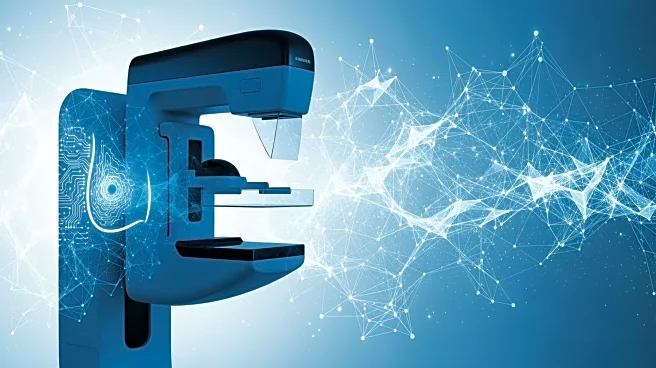Rapid Read • 8 min read
A recent study has developed AI-powered microscope models to improve the accuracy of interpreting HER2 immunohistochemical scores in invasive breast cancer. Conducted at West China Hospital of Sichuan University, the research involved constructing models for cancer region segmentation, tumor cell nuclei detection, and membrane staining intensity grading. The study collected 698 HER2 IHC slides from 2017 and 544 slides from 2019 to test the AI microscope's performance. The models demonstrated higher accuracy and consistency in interpreting HER2 scores compared to traditional pathological diagnosis methods. The AI system uses a bilateral segmentation network and a fully convolutional network to achieve precise semantic segmentation and nucleus detection, respectively. The study aims to enhance diagnostic accuracy by eliminating interfering factors and providing rapid interpretation of HER2 scores.
AD
The development of AI-powered microscopes for breast cancer diagnosis represents a significant advancement in medical technology. By improving the accuracy of HER2 score interpretation, these models can lead to better treatment decisions and outcomes for patients. Accurate diagnosis is crucial for determining the appropriate therapy, particularly in cases where HER2-targeted treatments are considered. The AI models reduce the workload on pathologists and minimize human error, potentially leading to more consistent and reliable diagnoses. This innovation could also pave the way for broader applications of AI in pathology, enhancing diagnostic processes across various types of cancer and other diseases.
The study suggests further validation and refinement of the AI models to ensure their reliability in clinical settings. As AI technology continues to evolve, there may be opportunities to integrate these models into routine diagnostic workflows, potentially transforming how pathologists approach cancer diagnosis. Collaboration between AI developers and medical professionals will be essential to address any challenges and optimize the models for widespread use. Additionally, regulatory approval and ethical considerations will need to be addressed before these AI systems can be fully implemented in healthcare facilities.
The integration of AI in medical diagnostics raises important ethical and legal questions, particularly concerning data privacy and the potential for algorithmic bias. Ensuring that AI models are trained on diverse datasets is crucial to avoid disparities in diagnostic accuracy across different patient populations. Moreover, the reliance on AI for critical medical decisions necessitates robust oversight and transparency in the development and deployment of these technologies. Long-term, AI could significantly alter the landscape of medical diagnostics, leading to more personalized and precise healthcare solutions.
AD
More Stories You Might Enjoy










